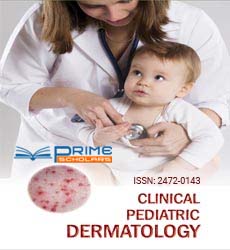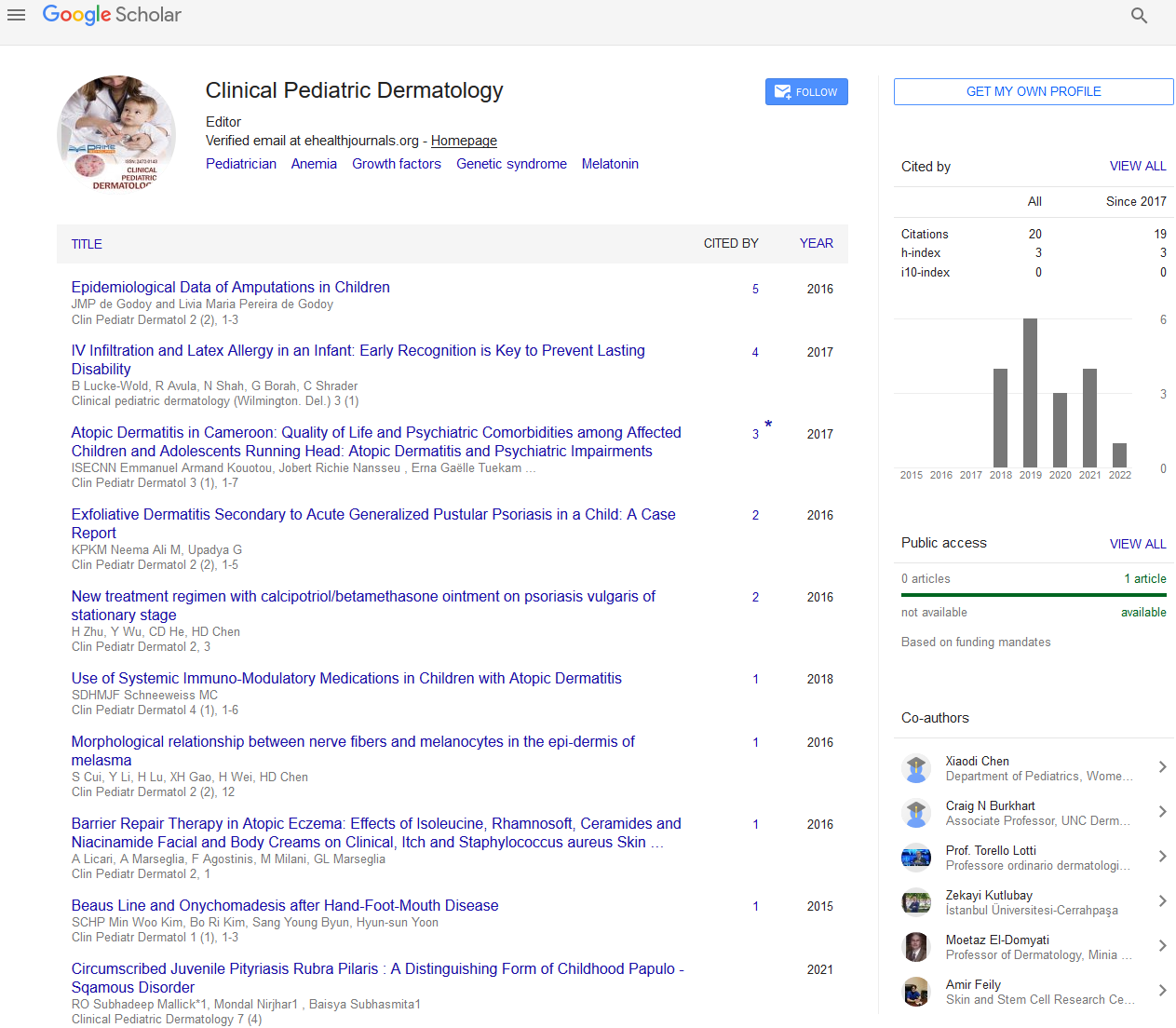Perspective - (2023) Volume 9, Issue 1
Etiology and Clinical Features of Psoriasis
Md Nurunnabi*
Department of Pharmaceutical Sciences, University of Texas, United States
*Correspondence:
Md Nurunnabi,
Department of Pharmaceutical Sciences, University of Texas,
United States,
Email:
Received: 31-Jan-2023, Manuscript No. ipcpdr-23-15846 ;
Editor assigned: 02-Feb-2023, Pre QC No. ipcpdr-23-15846 (PQ);
Reviewed: 16-Feb-2023, QC No. ipcpdr-23-15846 ;
Revised: 21-Feb-2023, Manuscript No. ipcpdr-23-15846 (R);
Published:
28-Feb-2023, DOI: 10.36648/2472-0143.9.1.05
Introduction
Psoriasis is a skin condition in which cells grow faster than they shed, causing excess skin to build up and form scaly patches on the body. Conditions: It seems that dry skin is accumulating on the body. It can occur at any age, but it usually develops as you get older. It begins by tearing the skin like a piece of paper with your fingertips. This skin begins to die, flake off, flake, and itch. With itching, the skin begins to turn red, with blisters, flakes, and flakes, of rough skin. It is most commonly seen on the hands, toes, arches of the feet, and heels. It also appears in the callus by cracking. Washing your hands has a burning effect. Living in a humid, humid climate seems to delay the onset of the condition. A dry, dry climate seems to exacerbate the condition. Washing your hands has a drying effect that causes the condition.
Description
When we wash, water removes fat from our bodies and dries out our hands. Washing with psoriasis removes the dry skin, but the skin underneath is rough. Hard water is a dry climate. It seems to make the condition worse in wet areas, but not so much in wet areas. Soft water would be better. Features may vary by subtype of pustular psoriasis. For example, it may be localized, often on the hands and feet (focal pustular psoriasis), or it may be generalized in widespread patches that occur randomly on any part of the body (generalized pustular psoriasis). Common to all forms of pustular psoriasis, however, is the presence of red, soft patches of skin covered with pustules. Pustular psoriasis can be localized, often on the hands and feet (palmplantar pustulosis), or it can be generalized with widespread patches that occur randomly anywhere on the body. A persistent acrodermatitis is a form of localized psoriasis that is confined to the fingers and toes and can spread to the hands and feet. Pustulosis palmaris ET plantaris is another form of focal pustular psoriasis, resembling persistent acrodermatitis, with erupting pustules from the red, tender, scaly skin of the palms and soles. In acute cases, Generalized Pustular Psoriasis (GPP) is also called acute generalized pustular psoriasis (by Zumbusch) and impetigo herpetiformis during pregnancy. GPP is a rare and severe form of psoriasis that requires hospitalization. This form of psoriasis is characterized by the acute appearance of numerous pustules on soft, red skin. This rash is often accompanied by fever, muscle aches, nausea, and an elevated white blood cell count. A rare form of GPP, Acropustular Psoriasis (APP), is the most common form occurring in childhood. APP tends to be more common in women than men and is usually less severe than other forms of generalized pustular psoriasis, such as impetigo herpetiformis.
Conclusion
This form of psoriasis is characterized by ring-shaped plaques and yellow crusts with pustules on the edges. APP primarily affects the trunk, neck, arms, and legs. Few studies have specifically focused on the treatment of guttate psoriasis, so there are currently no firm guidelines for treating guttate psoriasis other than plaque psoriasis. It is effective in treating severe cases of chronic guttate psoriasis. Because of the role streptococcal infection plays in the development of guttate psoriasis, systemic antibiotics have been considered a possible treatment option. There is equivocal evidence as to whether systemic antibiotics or tonsillectomy are effective and safe to treat this disease. The condition often resolves on its own within weeks to months, but only about one-third of patients develop chronic plaques.
Citation: Nurunnabi Md (2023) Etiology and Clinical Features of Psoriasis. Clin Pediatr Dermatol. 9:05.
Copyright: © 2023 Nurunnabi Md. This is an open-access article distributed under the terms of the Creative Commons Attribution License, which permits unrestricted use, distribution, and reproduction in any medium, provided the original author and source are credited.

